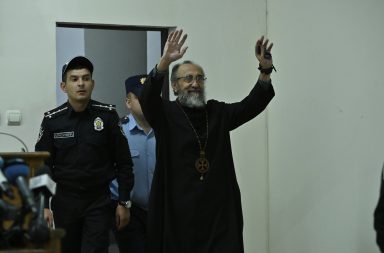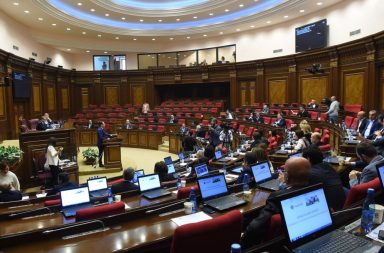by Manishak Baghdasaryan
A Historical Pretext
The OSCE Minsk Group was created in 1992 as the main international format to negotiate a peaceful settlement to the Artsakh (Nagorno-Karabakh) conflict. It had three co-chairs, Russia, the United States, and France, and permanent members that included Armenia, Azerbaijan, and several European states. Its mission was to prevent war, safeguard rights, and eventually mediate a just peace agreement. For decades, even with its limitations, the Minsk Group represented international recognition that the Artsakh issue was not a domestic affair of Azerbaijan but a conflict that required outside mediation. Its foundation rested on principles of self-determination, non-use of force, and territorial integrity.
The Road to Irrelevance
After the 2020 war and Azerbaijan’s 2023 assault which resulted in the ethnic cleansing of 120,000 Armenians from Artsakh, the Minsk Group lost its role. Baku openly rejected its involvement, while international actors shifted to bilateral or ad hoc formats. Instead of defending the Minsk Group as an important diplomatic tool, the Armenian government accepted this shift and increasingly echoed Azerbaijan’s narrative. Nikol Pashinyan’s government, which once promised a stronger and more secure peace, gradually reduced Armenia’s diplomacy to a chain of concessions disguised as “realism”. By failing to uphold the Minsk Group’s legitimacy, Yerevan abandoned the one platform that had recognized the people of Artsakh as a party to the conflict.
September 1, 2025: The Official Dissolution
On September 1, 2025, the OSCE confirmed that the Minsk Group and its related structures were dissolved after no member state objected to the silent procedure. This decision followed a joint request by Armenia and Azerbaijan on August 8 in the United States. Azerbaijan had tied it to the so-called peace treaty and used it as a condition for further talks. While the Armenian government preaches it agreed under pressure, this step aligns with its broader pro-Turkic objectives, which have shaped Armenia’s foreign policy since 2021 under the current government.
The dissolution also means that all previously adopted decisions on the Nagorno-Karabakh conflict have been declared invalid. This wipes out the historical record of internationally recognized agreements and principles that for decades confirmed Artsakh as a conflict requiring settlement through negotiation and compromise.
Russia’s representative to the OSCE, Alexander Lukashevich, stated that by December 2025 the Minsk Group, the High-Level Planning Group, and the Personal Representative of the OSCE Chairperson-in-Office would cease to exist. In practice, this means the international community has now confirmed and legitimized the results of Azerbaijan’s wars of aggression, leaving Armenians without even a symbolic diplomatic framework.
From Promise to Capitulation
From an Armenian perspective, this is not just a procedural change. It is a defeat with long-term consequences. For more than thirty years, the Minsk Group embodied the idea that Armenians of Artsakh had rights and security concerns that could not be erased by force. By accepting its dissolution, Armenia’s leadership has effectively legitimized ethnic cleansing and accepted war as a tool of diplomacy. The government’s policy of appeasing Azerbaijan, driven by its need to preserve power, has dismantled the last elements of Armenia’s leverage. The promises of a “different path” made to the Armenian people in 2021 now look like empty words. The reality is that the authorities are implementing the exact opposite of what they once pledged.
The end of the Minsk Group does not mean the conflict has been resolved. The right of displaced Armenians of Artsakh to return to their homes with safety and dignity remains. This right was even reaffirmed by the International Court of Justice in November 2023. Armenian prisoners are still held in Azerbaijani captivity, and Armenian cultural heritage in Artsakh faces systematic destruction. These humanitarian and legal issues have not disappeared, even if the Minsk Group has.
The dissolution of the Minsk Group sends a dangerous message: that conflicts are decided by force, not law. This idea will not bring peace. It will invite more violence and instability in the region.


